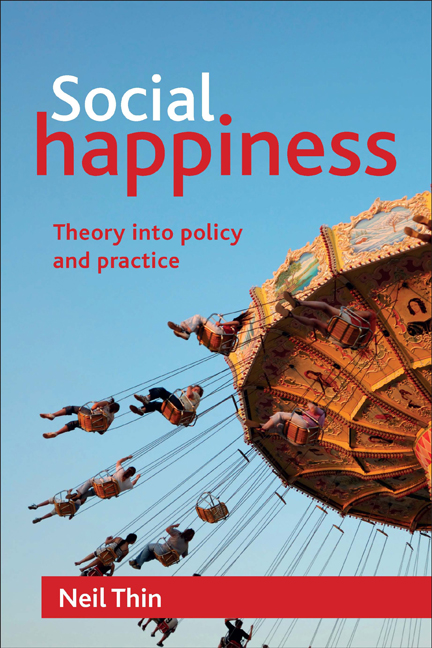Preface
Published online by Cambridge University Press: 01 September 2022
Summary
If you’re poor, I hope you get rich. If you’re rich, I hope you get happy. (Bob Dylan)
Everyday language can be refreshing in academic or policy discourse, improving their appeal and relevance. The sciences and policies of social transformation might engage more persuasively with a wider public if we sometimes made use of the experience-near concepts that people sing about, like love and happiness. We sing about these things because we care about them, and caring is the prerequisite of ethics and progress. If you care about the idea of personal or social progress, and think of any aspect of your life's work as ‘progressive’, you had better think carefully about whether you have enough understanding of happiness to pursue these ambitions. Even if, more modestly, you just want to ‘matter’ to other people, to behave ‘ethically’, and to be seen as a decent, caring person, do you honestly believe you can do these things without theories and knowledge about happiness?
Perhaps we all yearn for happiness and like to imagine ourselves as joy spreaders and purveyors of love, hope, empathy, and meaning. But by no means all of us find it acceptable or interesting to talk about happiness in public, or to make it an explicit personal aim or policy objective. To talk about values, or justice, or prosperity without reference to happiness, however, is perverse and potentially very damaging. Just having a happiness theory doesn’t, of course, mean that your theory is a valid one, but no one can plausibly claim to be a force for the good in the world without some theory about how they contribute to happiness. Yet remarkably few scholars or change agents articulate such a theory. We have a long way to go before the study of happiness is routinely embedded in our instruction systems and policy discourse. Whether you’re a social scientist or a someone who deliberately tinkers with society in any way, my aim is that by reading this book you will develop a clearer sense of what it means to apply a ‘happiness lens’ to your work, and of why this might improve your chances of making a benign difference to people's lives.
- Type
- Chapter
- Information
- Social HappinessTheory into Policy and Practice, pp. ix - xviPublisher: Bristol University PressPrint publication year: 2012



